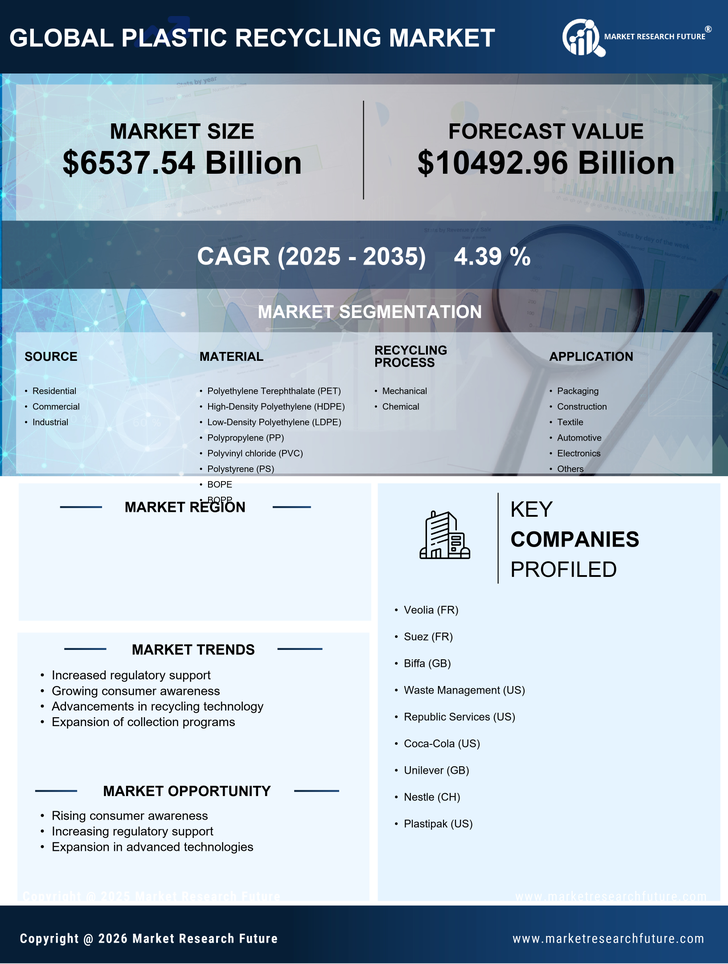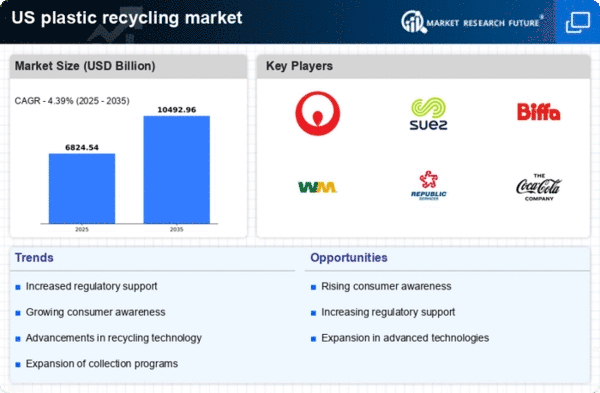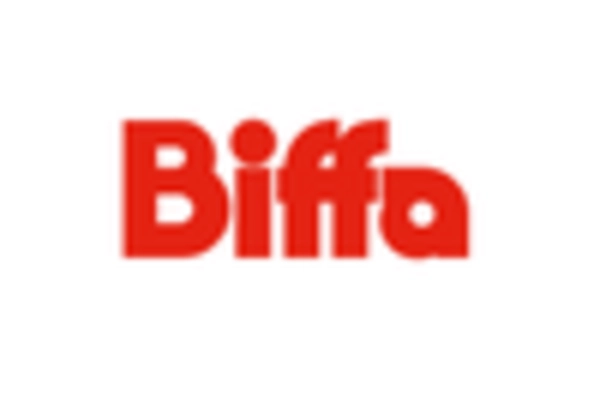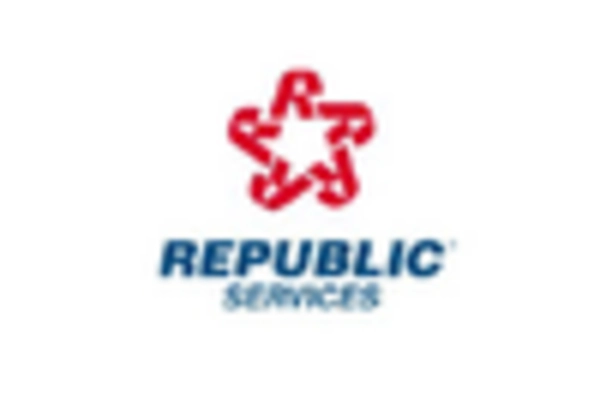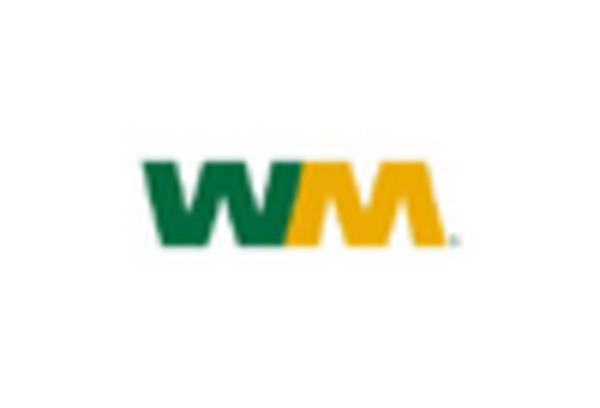Corporate Sustainability Goals
Many corporations are establishing ambitious sustainability goals, which significantly influence the plastic recycling market. Companies are increasingly committing to using recycled materials in their products, with some aiming for 100% recyclable packaging by 2025. This trend is driven by both consumer demand and regulatory pressures, compelling businesses to adopt more sustainable practices. The plastic recycling market industry is thus benefiting from these corporate initiatives, as firms invest in recycling technologies and partnerships with recycling facilities. This alignment of corporate strategies with sustainability objectives is expected to enhance the market's growth trajectory, potentially leading to a 30% increase in recycled plastic usage by 2030.
Government Incentives and Support
Government initiatives play a crucial role in shaping the plastic recycling market. Various federal and state programs are designed to promote recycling through financial incentives, grants, and subsidies. For instance, the U.S. government has allocated over $1 billion in funding to support recycling infrastructure improvements. Such financial backing encourages businesses to invest in recycling technologies and facilities, thereby enhancing the overall efficiency of the plastic recycling market industry. Additionally, these incentives often lead to job creation within the recycling sector, further stimulating economic growth. As government support continues, it is anticipated that the plastic recycling market will expand, fostering innovation and sustainability.
Increased Environmental Awareness
The growing consciousness regarding environmental issues among consumers and businesses is a pivotal driver for the plastic recycling market. As awareness of plastic pollution escalates, stakeholders are increasingly motivated to adopt sustainable practices. This shift is reflected in the rising demand for recycled materials, which is projected to reach a market value of approximately $10 billion by 2027. Companies are now prioritizing eco-friendly initiatives, leading to enhanced investments in recycling technologies. The plastic recycling market industry is thus experiencing a transformation, as organizations strive to align with consumer expectations for sustainability. This trend is likely to continue, as educational campaigns and advocacy efforts further amplify public concern about plastic waste.
Technological Innovations in Recycling
Technological advancements are revolutionizing the plastic recycling market, enabling more efficient and effective recycling processes. Innovations such as advanced sorting technologies and chemical recycling methods are enhancing the quality and quantity of recycled materials. For instance, new sorting technologies can increase the recovery rates of recyclable plastics by up to 50%. These advancements not only improve operational efficiency but also reduce costs associated with recycling. As the plastic recycling market industry embraces these technologies, it is likely to witness a surge in the availability of high-quality recycled materials, which can be reintegrated into the production cycle. This trend may lead to a more circular economy, where plastic waste is continuously repurposed.
Rising Demand for Circular Economy Solutions
The concept of a circular economy is gaining traction, significantly impacting the plastic recycling market. Businesses and consumers alike are increasingly recognizing the value of reusing materials and minimizing waste. This shift towards circularity is prompting companies to explore innovative recycling solutions, thereby driving demand for recycled plastics. The plastic recycling market industry is responding to this trend by developing systems that facilitate the collection, processing, and reintegration of plastic waste into new products. As more organizations adopt circular economy principles, it is anticipated that the market will experience robust growth, with projections indicating a potential doubling of recycled plastic usage by 2035.
